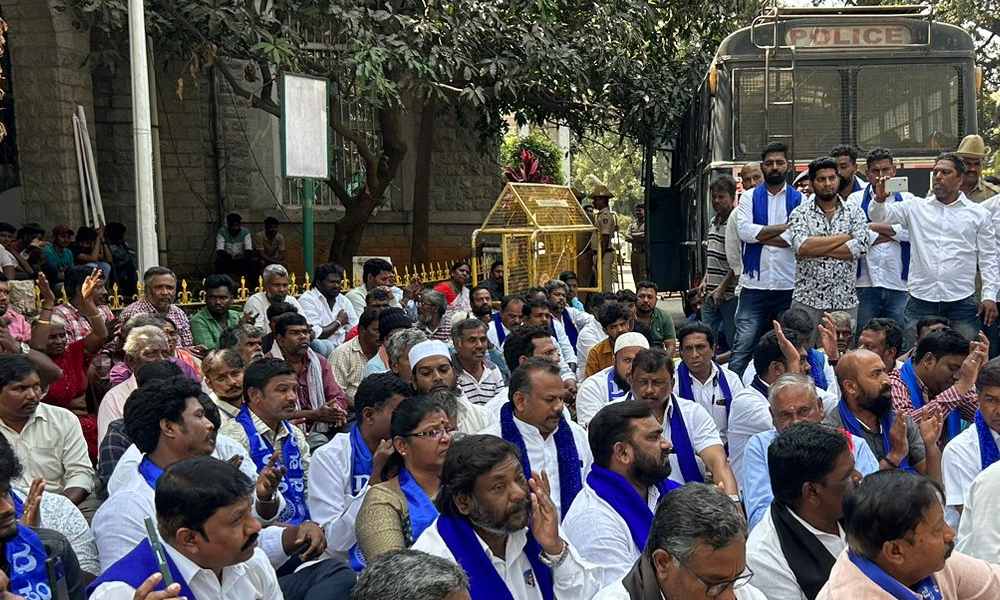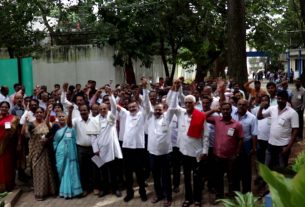Bangalore Bruhat Mahanagara Palike (BBMP), under the banner of the Bangalore Smart City initiative, is working towards the abolition of roadside cobblers.
Ramesh taps his hammer against worn leather, a familiar rhythm in Jayanagar for 20 years. But his iron kiosks, his livelihood and his neighbourhood fixture, might not fit Bangalore’s Smart City vision. He, like many cobblers, faces displacement, his license offering little protection against progress’s march. This isn’t just about a city makeover, it’s about lives hanging .in the balance.
Cobblers across various neighborhoods in Bangalore, including Jayanagar, Malleshwaram, JP Nagar, Shivajinagar, and other regions of the city, are facing a potential threat to their longstanding trade. The Bangalore Bruhat Mahanagara Palike (BBMP), under the banner of the Bangalore Smart City initiative, is reportedly working towards the abolition of these roadside cobblers, despite the vendors possessing valid licenses for their iron kiosks.

This move has severe implications, as it directly affects the daily livelihoods of these individuals, leaving them struggling to provide for their families.
Ramesh, cobbler in Jayanagar said, “I have been mending shoes at this spot for over 20 years, with a valid license. Now, BBMP say I have to move, but where will I go? How will I feed my family?”
BBMP Commissioner Tushar Giri Nath addressed the concerns surrounding the situation, stating, “We have allotted INR 80 lakhs specifically for the vendors, and we will provide them with the space they need. Our goal is to facilitate a smooth transition for these vendors while ensuring the overall development of the city.”
Another cobbler from Malleshwaram voiced his concerns, stating, “We understand the need for progress, but it’s essential to consider the impact on our families. Having a designated space is crucial for us to continue our work and provide for our families. We hope the authorities understand our predicament.”
Vikram Bhatt, Urban planner, weighed in on the situation, highlighting the complexities of balancing urban development with the preservation of traditional livelihood, he stated, “Cities are dynamic entities, constantly evolving and striving for progress. However, it’s crucial to approach development with sensitivity and inclusivity.
The challenge lies in finding a middle ground that accommodates the needs of both the city’s vision for modernization and the preservation of longstanding trades, like that of the cobblers.”
Bhatt added, “Urban planning should not be a top-down imposition but a collaborative effort that considers the diverse fabric of the city. Inclusivity in planning ensures that the benefits of development are shared equitably, and the city retains its unique character,” he added.




